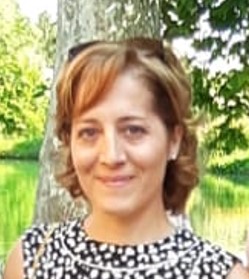Studying at the University of Verona
Here you can find information on the organisational aspects of the Programme, lecture timetables, learning activities and useful contact details for your time at the University, from enrolment to graduation.
Academic calendar
The academic calendar shows the deadlines and scheduled events that are relevant to students, teaching and technical-administrative staff of the University. Public holidays and University closures are also indicated. The academic year normally begins on 1 October each year and ends on 30 September of the following year.
Course calendar
The Academic Calendar sets out the degree programme lecture and exam timetables, as well as the relevant university closure dates..
| Period | From | To |
|---|---|---|
| Sem. 1A | Sep 24, 2018 | Nov 10, 2018 |
| Sem. 1B | Nov 19, 2018 | Jan 12, 2019 |
| Sem. 2A | Feb 18, 2019 | Mar 30, 2019 |
| Sem. 2B | Apr 8, 2019 | Jun 1, 2019 |
| Session | From | To |
|---|---|---|
| Sessione Invernale | Jan 14, 2019 | Feb 16, 2019 |
| Sessione Estiva (Gli esami sono sospesi durante la Sessione di laurea) | Jun 3, 2019 | Jul 27, 2019 |
| Sessione Autunnale | Aug 26, 2019 | Sep 21, 2019 |
| Session | From | To |
|---|---|---|
| Sessione Estiva | Jul 8, 2019 | Jul 13, 2019 |
| Sessione Autunnale | Nov 4, 2019 | Nov 9, 2019 |
| Sessione Invernale | Mar 30, 2020 | Apr 4, 2020 |
| Period | From | To |
|---|---|---|
| Festa di Ognissanti | Nov 1, 2018 | Nov 1, 2018 |
| Festa dell’Immacolata | Dec 8, 2018 | Dec 8, 2018 |
| Vacanze di Natale | Dec 22, 2018 | Jan 6, 2019 |
| Vacanze di Pasqua | Apr 19, 2019 | Apr 23, 2019 |
| Festa della liberazione | Apr 25, 2019 | Apr 25, 2019 |
| Festa del lavoro | May 1, 2019 | May 1, 2019 |
| Festa del Santo Patrono - S. Zeno | May 21, 2019 | May 21, 2019 |
| Vacanze Estive | Aug 12, 2019 | Aug 17, 2019 |
Exam calendar
Exam dates and rounds are managed by the relevant Humanistic Studies Teaching and Student Services Unit.
To view all the exam sessions available, please use the Exam dashboard on ESSE3.
If you forgot your login details or have problems logging in, please contact the relevant IT HelpDesk, or check the login details recovery web page.
Should you have any doubts or questions, please check the Enrollment FAQs
Academic staff
 domenico.lipari@univr.it; domenico.lipari@uniroma1.it
domenico.lipari@univr.it; domenico.lipari@uniroma1.it
 mariagrazia.ottaviani@univr.it
mariagrazia.ottaviani@univr.it
Study Plan
The Study Plan includes all modules, teaching and learning activities that each student will need to undertake during their time at the University.
Please select your Study Plan based on your enrollment year.
1° Year
| Modules | Credits | TAF | SSD |
|---|
2° Year activated in the A.Y. 2019/2020
| Modules | Credits | TAF | SSD |
|---|
3° Year activated in the A.Y. 2020/2021
| Modules | Credits | TAF | SSD |
|---|
| Modules | Credits | TAF | SSD |
|---|
| Modules | Credits | TAF | SSD |
|---|
| Modules | Credits | TAF | SSD |
|---|
| Modules | Credits | TAF | SSD |
|---|
Legend | Type of training activity (TTA)
TAF (Type of Educational Activity) All courses and activities are classified into different types of educational activities, indicated by a letter.
Computer Science and Multimedia (2018/2019)
Teaching code
4S02405
Teacher
Coordinator
Credits
6
Also offered in courses:
- Computer Science and Multimedia of the course Bachelor's degree in Organisational Training
Language
Italian
Scientific Disciplinary Sector (SSD)
INF/01 - INFORMATICS
Period
Sem. 1A dal Sep 24, 2018 al Nov 10, 2018.
Learning outcomes
General aims :
Knowing and understanding methods of research and measurement of psychological phenomena related to the individual, interpersonal relationship and groups
Specific learning objectives:
define the fundamental concepts of computer science
describe the functionality of the Office Automation
describe the applications of computer science in the knowledge society
illustrate the fundamental concepts and tools of multimedia
illustrate multimedia applications in communication and entertainment
define the principles of Multimedia Learning by Mayer
describe the characteristics of online teaching and mobile learning
describe the different formats and characteristics of digital andmultimedia contents
illustrate the functions of a Learning Management System (LMS)
designe and implement a LO, Learning Object linked to the gamefication.
Program
EDUCATIONAL GOALS
The course aims to provide students with about information technology and multimedia in various areas of the knowledge society: basic principles of computer science, office automation applications, applications
in training and teaching, effective communication and virtual reality, online training and mobile
learning, from stand-alone applications to cloud sharing activities.
Starting from the foundations of media pedagogy (teaching technologies, WITH technologies and INSIDE
technologies), we will deepen our knowledge about the tools and environments suitable for digital
teaching; an important mention will make us reflect on the critical issues of the network and the Web and
on the role of technologies in media education.
With reference to constructivist and socio-constructivist paradigms, to multimedia theories, and to the
principles of ID - Istructional Design, we will acquire skills for the production of LO (Learning Object), linked
to gamefication.
At the end of the training course, students must have acquired knowledge to list, describe and analyze
some information and multimedia technologies to support teaching; in detail they will have to be able to:
• define the fundamental concepts of computer science
• describe the applications of information technology in the knowledge society
• to describe the synergies between technology and the Web and the related critical issues
• describe the educational potential of media education
• illustrate the fundamental concepts and tools of multimedia
• illustrate multimedia applications in communication and entertainment
• define the principles of Multimedia Learning by Mayer
• describe the characteristics of online teaching and mobile learning
• describe the different formats and characteristics of digital and multimedia contents
• illustrate the functions of an LMS (Learning Management System) platform
• design and implement a LO, Learning Object linked to the gamefication.
PROGRAM
• Basic concepts of computer science and its applications in the knowledge society. Tools, resources and environments.
• Technologies and multimedia. Theories and trends. Digital and interactive communication.
• Digital technologies and teaching. Tools and skills of the trainer 2.0. Matrix software analysis for teaching.
• Multimodal and multimedia texts. From concept maps to ebooks. Formats and characteristics of digital and multimedia contents.
• Multimodal and multimedia texts. From hypertext to the blog. Formats and characteristics of digital and multimedia contents.
• Technologies and Web. Applications, evolution and criticality. Outlines of media education.
• Online technologies and education. Spaces, environments and cloud tools.
• Online and mobile learning. CMS, LMS and CLMS platforms. User friendly platforms. Good practice.
• Design of a LO, Learning Object linked to the gamefication. App and Educational Software. LO Creation Matrix.
• Implementation of a LO, Learning Object. Sharing and exporting of digital content.
DIDACTIC METHODS
The teaching is developed in two different environments:
- Classroom environment: lessons in classroom with use of lectures (with slides that will be an integral part of the bibliography for the exam).
- E-learning environment: participation in discussion and thematic forums, construction of interactive glossaries, production of multimedia authorial products. Mandatory activities.
| Author | Title | Publishing house | Year | ISBN | Notes |
|---|---|---|---|---|---|
| Maria Grazia Ottaviani | Dispense del corso Tecnologie Informatiche Multimediali 3 (Edizione 1) | 2020 | |||
| Simona Carta,Marisa Orlando,Bruno G. Ronsivalle | .GET. Guida all'education technology. Informatica e multimedialità per educatori e professionisti della formazione | Maggioli Editore | 2013 | 9788838777905 | |
| A. Cattaneo, P.C. Rivoltella | Tecnologie, Formazione, Professioni | Unicopli Milano | 2010 |
Examination Methods
BIBLIOGRAPHY ATTENDING STUDENTS:
- Simona Carta,Marisa Orlando,Bruno G. Ronsivalle, “.GET. Guida all'education technology. Informatica e multimedialità per educatori e professionisti della formazione”, Maggioli Editore, 2013 9788838777905
- Teacher’s notes downloadable from the e-Learning platform: Maria Grazia Ottaviani - Dispense del corso (Edizione 2) 2018/2019
BIBLIOGRAPHY NON ATTENDING STUDENTS:
- Simona Carta,Marisa Orlando,Bruno G. Ronsivalle, “.GET. Guida all'education technology. Informatica e multimedialità per educatori e professionisti della formazione”, Maggioli Editore, 2013 9788838777905
- Teacher’s notes downloadable from the e-Learning platform: Maria Grazia Ottaviani - Dispense del corso (Edizione 2) 2018/2019
- A. Cattaneo, P.C. Rivoltella, “Tecnologie, Formazione, Professioni”, Unicopli Milano, 2010
REQUIREMENT OF ACCESS TO EXAM
Before attending the exam, the attending student is required to:
- deliver the completed format of the activities carried out online (construction of LO) in the e-learning space set up.
- participate in the mandatory discussion and thematic forums, posting the required posts.
Before presenting for the exam, the NON-attending student is required to:
- participate in the mandatory discussion and thematic forums, reserved for non-attending students, by posting the required posts.
EXAMINATION PROCEDURE
Written exam with semi-structured test type on the entire course program.
Type D and Type F activities
Modules not yet included
Career prospects
Module/Programme news
News for students
There you will find information, resources and services useful during your time at the University (Student’s exam record, your study plan on ESSE3, Distance Learning courses, university email account, office forms, administrative procedures, etc.). You can log into MyUnivr with your GIA login details: only in this way will you be able to receive notification of all the notices from your teachers and your secretariat via email and soon also via the Univr app.
Gestione carriere
Linguistic training CLA
Student mentoring
Practical information for students
Documents
| Title | Info File |
|---|---|
|
|
pdf, it, 325 KB, 02/05/23 |
|
|
pdf, it, 212 KB, 02/05/23 |
|
|
pdf, it, 131 KB, 02/05/23 |
Graduation
Documents
| Title | Info File |
|---|---|
|
|
pdf, it, 99 KB, 13/10/23 |
|
|
pdf, it, 101 KB, 10/04/24 |
|
|
pdf, it, 296 KB, 28/07/22 |
|
|
pdf, it, 142 KB, 28/07/22 |
|
|
octet-stream, it, 24 KB, 28/07/22 |
List of theses and work experience proposals
Stage e Tirocini
Le attività che ci si aspetta il/la tirocinante curriculare in Scienze psicologiche per la formazione svolga presso gli enti che lo/la ospitano riguardano principalmente attività di affiancamento nei seguenti ambiti:
- Formazione, sviluppo, innovazione e gestione delle risorse umane;
- Orientamento scolastico e professionale;
- Ricerca, selezione e valutazione psicologica del personale.
Sono ritenuti ambiti adeguati le diverse agenzie per il lavoro, le agenzie di formazione, le agenzie di orientamento, le società di consulenza e tutti gli enti, le associazioni, le aziende, le imprese e, in generale, le organizzazioni che al loro interno operano attività di ricerca, selezione e valutazione psicologica del personale, attività di formazione, sviluppo, innovazione e gestione delle risorse umane e attività di orientamento scolastico e professionale. Anche enti di ricerca e Università dove si conducono studi e indagini su questi temi sono ambiti ritenuti adeguati.
Lo/la studente/essa sarà seguito/a da un tutor accademico e da un tutor aziendale. Alle attività di tirocinio sono attribuiti 9 CFU (pari a 225 ore).
Il tutor aziendale deve essere un laureato in psicologia anche non iscritto all’albo.
Linee Guida per lo Svolgimento dei Tirocini Curriculari
- Tutte le informazioni in merito agli stage per futuri studenti sono disponibili alla pagina Stage e tirocini.
- Tutte le informazioni in merito agli stage per studenti iscritti sono pubblicate in MyUnivr - come fare per - stage e tirocini.
- Tutte le informazioni in merito agli stage per le aziende sono disponili alla pagina Stage e tirocini per azienze.

 0458028369
0458028369







